Tourists enamored with city's sweet deals and discount ceramic products
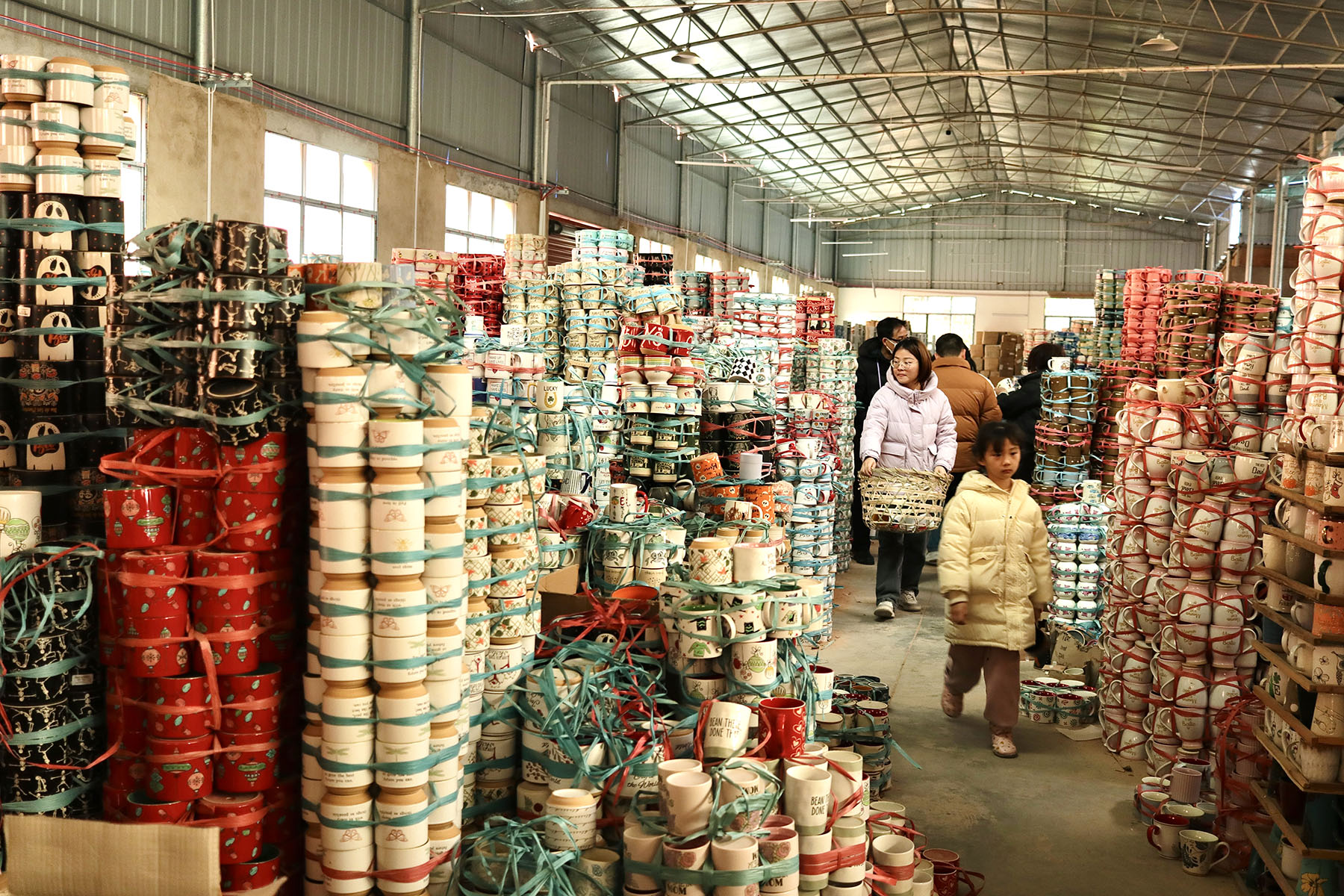
Everyone likes a bargain. That's one of the reasons that Liling in Hunan province has attracted tourists in their droves — the city has become the must-go place for picking up cheap porcelain.
The buzz started last September in much the same way as the buzz around barbecue in Zibo, Shandong province, and malatang (spicy hotpot) in Tianshui, Gansu province. Social media posts started flaring up and attracting likes in their thousands on platforms such as Xiaohongshu and Douyin, showing viewers the great deals that can be picked up from the kilns of Liling for product castoffs, overruns and factory seconds — items with slight manufacturing flaws.
Liling has a long history of producing porcelain, and along with Dehua county in Fujian province and Jingdezhen in Jiangxi province, is known as one of the "three capitals" of Chinese porcelain-making.
READ MORE: Ceramic capital turns to a modern future
The city is sometimes referred to as a "state kiln" thanks to its reputation as a place where porcelain was made exclusively for the nation's top leaders, including Chairman Mao Zedong, from the late 1950s to the 1980s.
The high-end porcelain produced in the city — Liling underglaze-colored porcelain — was listed as a national intangible cultural heritage in 2008. The top-grade underglaze-colored porcelain has been delivered to Beijing for national leaders, state banquets and as state gifts.
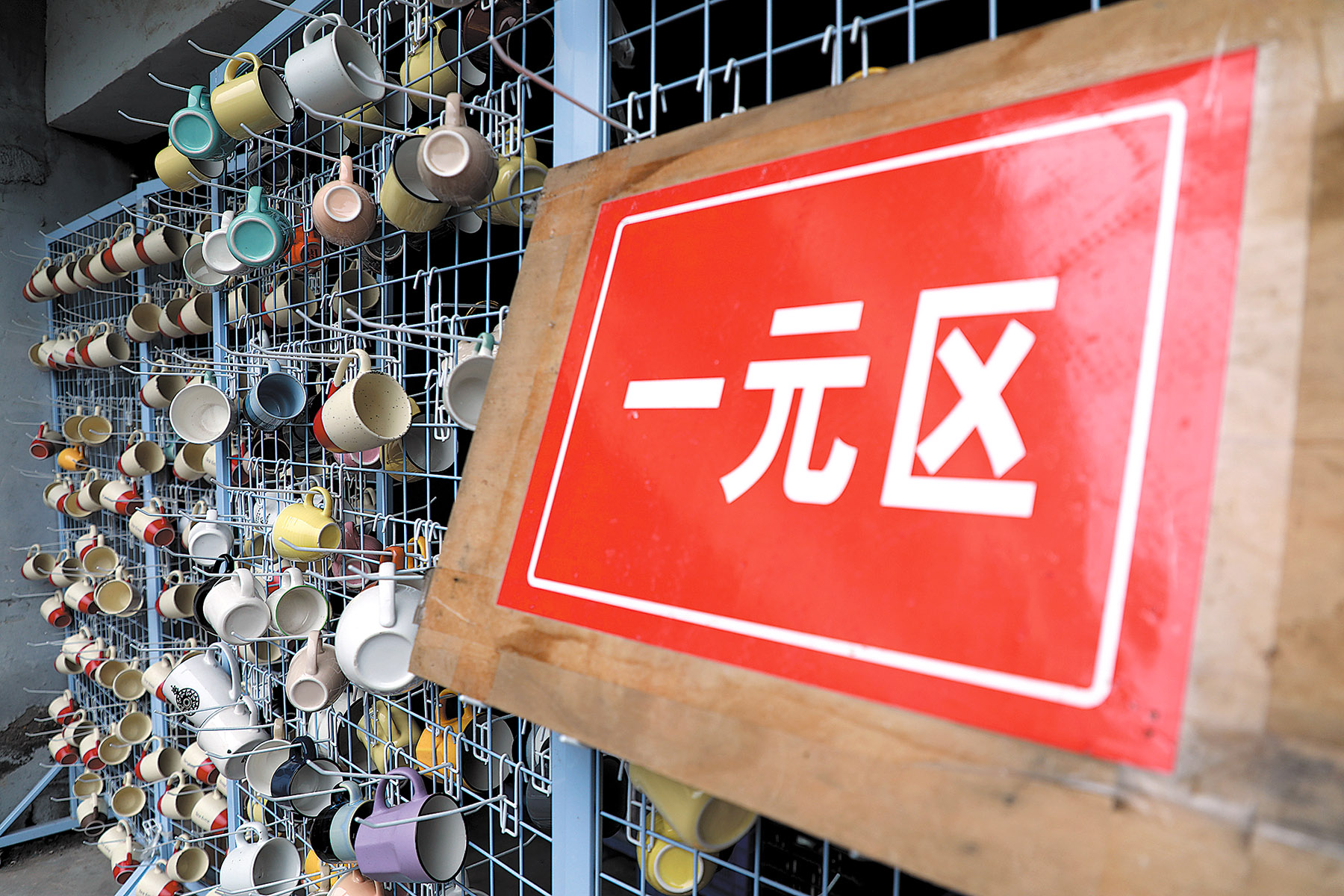
Today, travelers can find everyday ceramic items such as cups and bowls sold at dirt cheap prices, usually under 5 yuan ($0.7) each. Some are even given away for free.
On Xiaohongshu, travel guides for different factories have sprung up telling people where they can find lots of beautiful bowls, plates and cups for under 5 yuan.
Liu Liang, a senior official at the Liling culture, tourism, radio, television and sports bureau, said that after "picking up porcelain in Liling" became popular online, the local government took the opportunity to promote the city in mainstream media.
As China's top exporter of porcelain, the production value of the city's industry hit 80 billion yuan last year, Liu said.
According to local government figures, the city has more than 1,500 porcelain-related enterprises and produces more than 4,000 types of porcelain for daily use, manufacturing and art. Liling's porcelain has been sold in more than 150 countries.
A total of 2.3 million people visited Liling from August to December last year, which itself has a population of 1.06 million, specifically to purchase bargain porcelain.
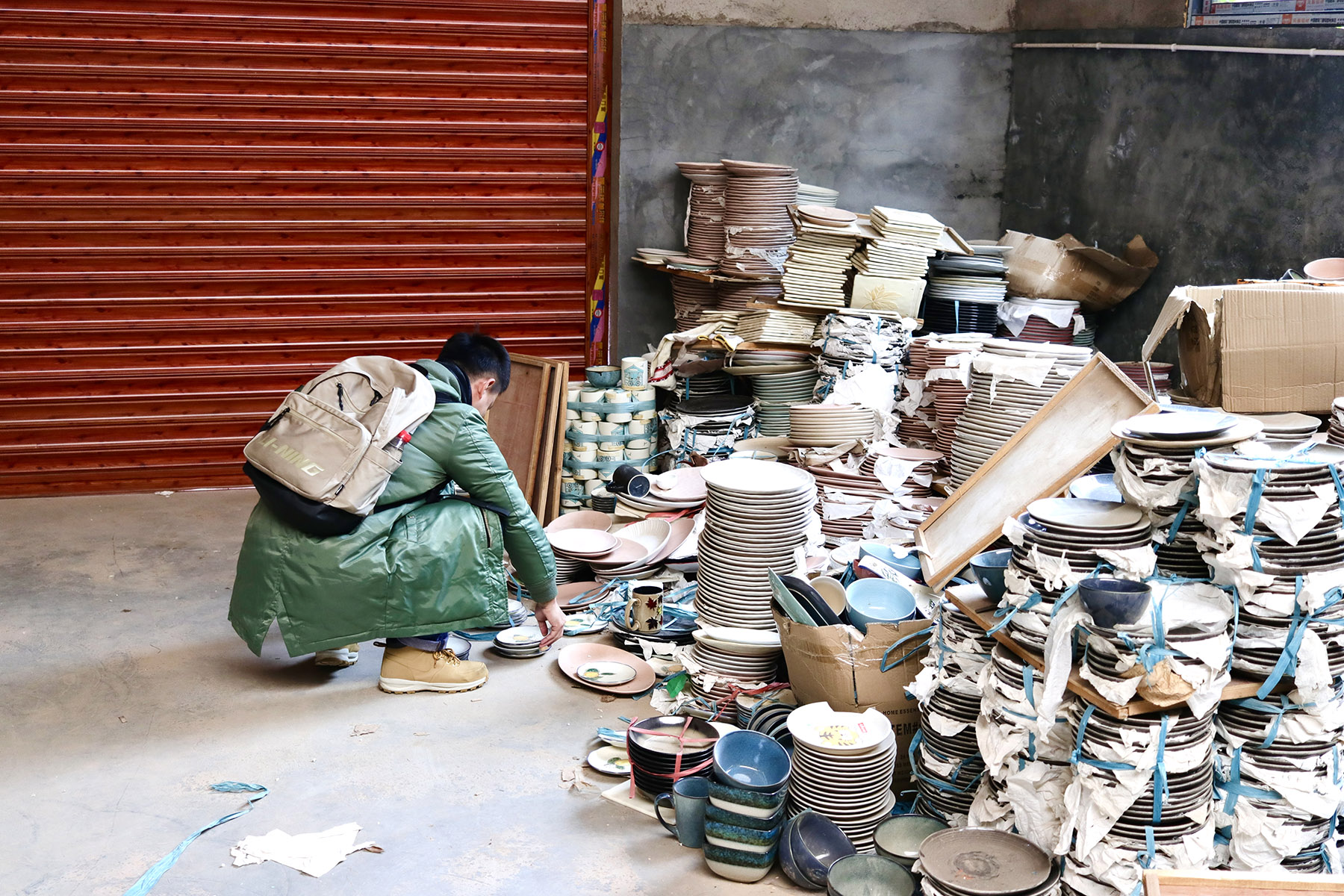
The side industry of selling castoff porcelain has grown so big that more than 50 enterprises run it as either their main or sideline business.
Local porcelain enterprises and travel agencies have also got in on the action by actively promoting "factory seconds" discounts and deals to attract the growing customers
The city plans to improve the branding of "picking up porcelain", known as jianci in Chinese, by helping enterprises to create a unified logo and standards, said Liu.
In the past, picking up porcelain helped local enterprises clear their stock, but now they need to focus more on making products liked by travelers, especially young travelers, to generate a buzz online, he said.
Liling is also capitalizing on the situation by creating dedicated sites for picking up porcelain and offering tourists supplementary services such as dining, accommodation and transportation.
Guo Hanjun, who works at Liling's multimedia center, said it has made lots of videos promoting picking up porcelain since August, and several videos have trended on social media.
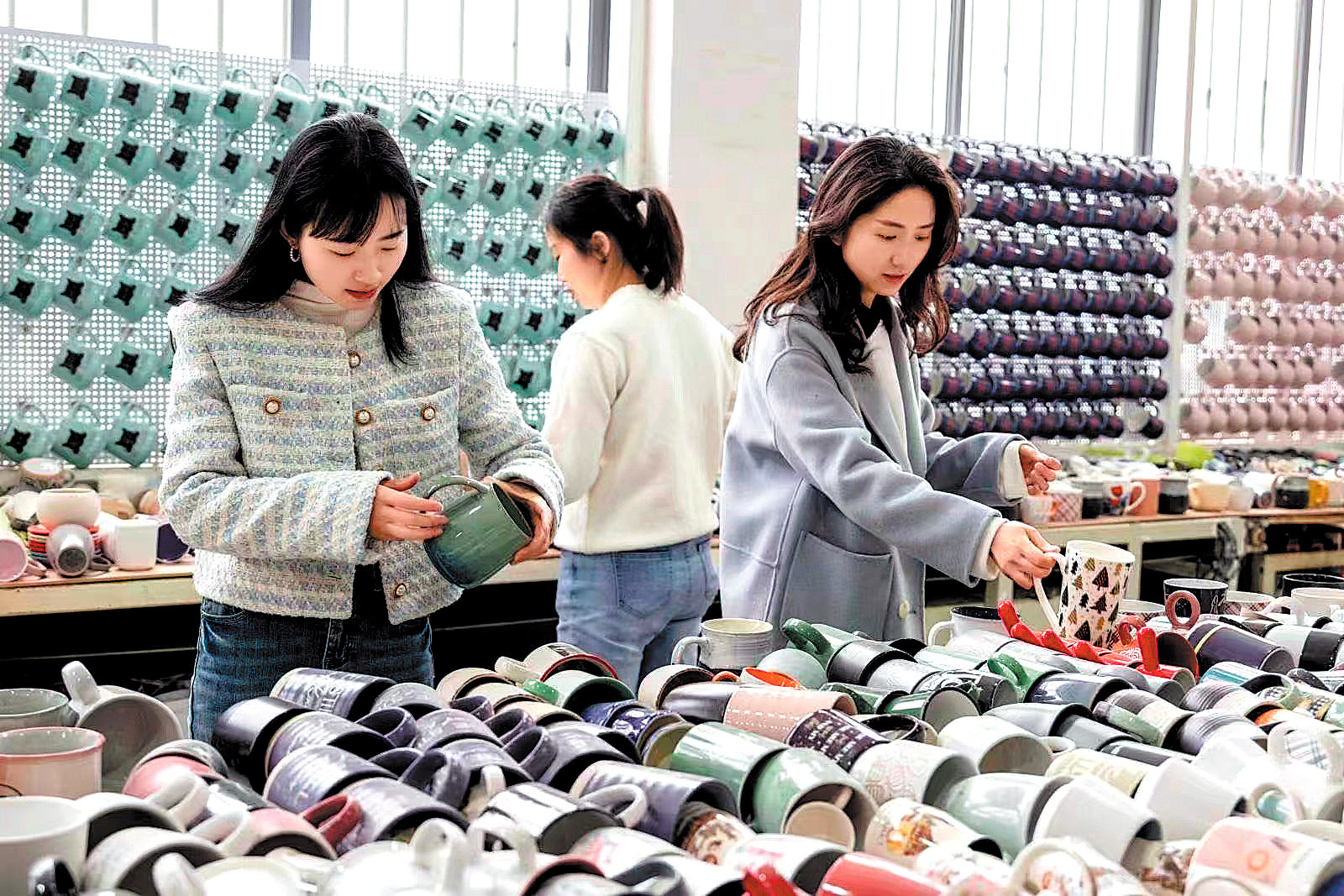
The city has also invited celebrities, published porcelain picking-up guides and promoted itself at universities, Guo said.
As of March, the center has published almost 1,000 news stories about porcelain, with total views topping 400 million, he said.
The discount porcelain craze has helped the city's tourism and consumption to recover from the COVID-19 pandemic, he added.
Local culture and tourism bureaus across the country are in fierce competition to promote their cities and attract travelers, said Liu from the culture bureau, adding that tourism can be a great tool to promote the brand of a city and in turn generate consumption and industry upgrading.
"We hope we can attract more people to Liling and offer better culture and tourism services to them, so they are willing to stay in the city for some time," he added.
Zheng Hui, 37, came from Liuyang, Hunan province, to Liling to pick up porcelain. She owns a furniture store in Liuyang and wanted to buy some porcelain as accessories for the furniture.
She said it was her second time visiting Liling, and has already made some money by reselling to her customers the porcelain she bought.
"I prefer to choose unique items, and the feeling of treasure hunting is very good," she said. "I believe almost all women enjoy looking for beautiful things, and they won't leave these porcelain stores empty-handed."
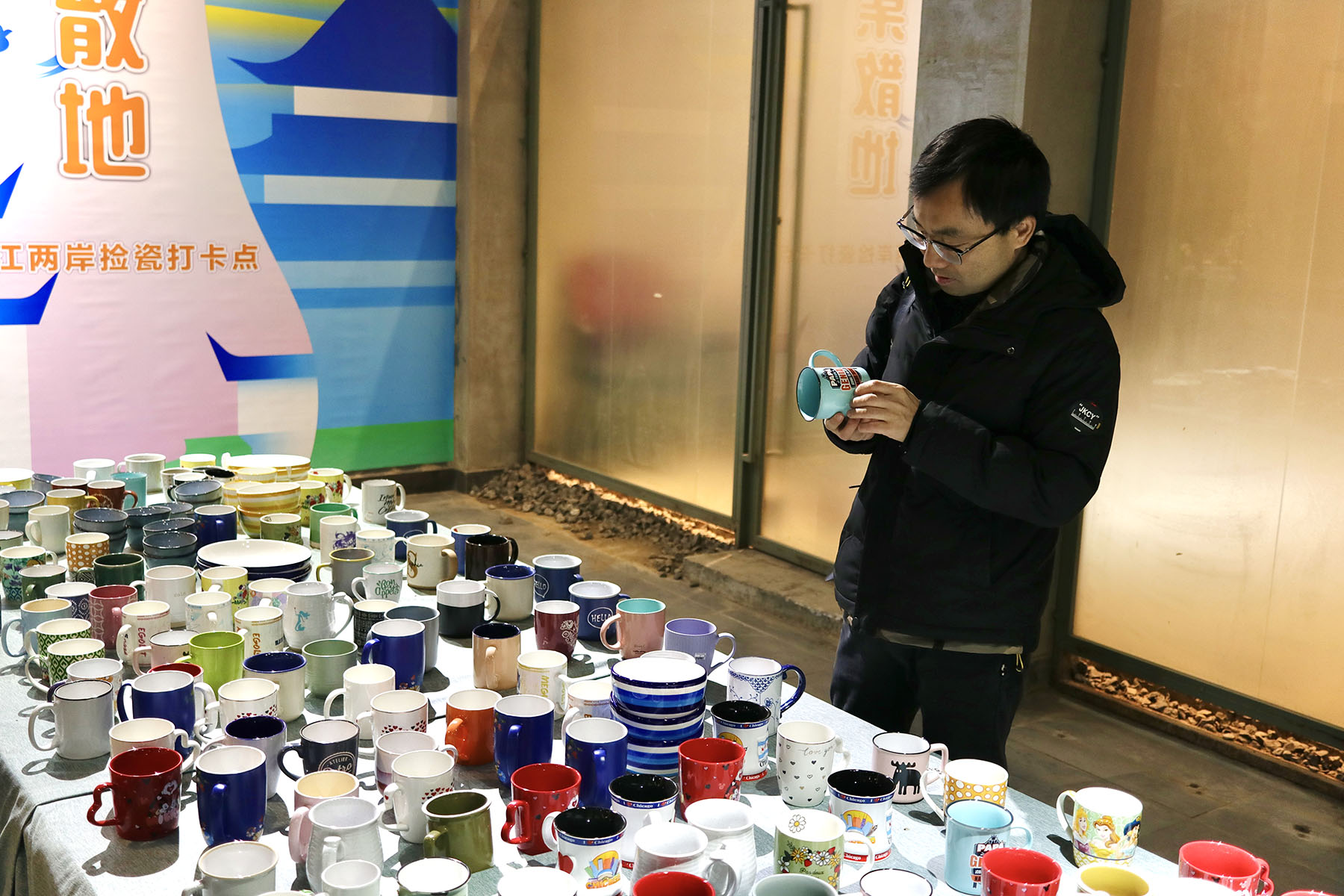
Yan Wen, 39, came from Changsha, Hunan province, to Liling to spend a relaxing day. She learned about the porcelain from social media platform Xiaohongshu. She went to a local porcelain museum, ate fried rice noodles and visited a local kiln to pick up some porcelain.
"Everything looked very beautiful to me and I planned to buy some for myself and my friend," she said.
Zhou Lingzhi, 49, came to Liling from Heyang, Hunan province, with his wife to buy porcelain for their new apartment.
They filled the trunk of their car with porcelain, from bowls, chopsticks and cups, to vases and flower pots.
"The porcelain in Liling is of high quality and the leftovers are also very cheap, so it was hard for us to choose because we found everything novel and beautiful," he said.
Liao Wei, head of Meijia Porcelain in Liling, said his factory has been packed with people from other places trying to find beautiful-yet-cheap products during holidays and on weekends.
He livestreams three hours every day to sell porcelain to his followers, which nets sales of almost 2,000 pieces daily.
The livestreaming sessions have also helped to promote his factory and many of his fans have come to buy the porcelain in person, he said.
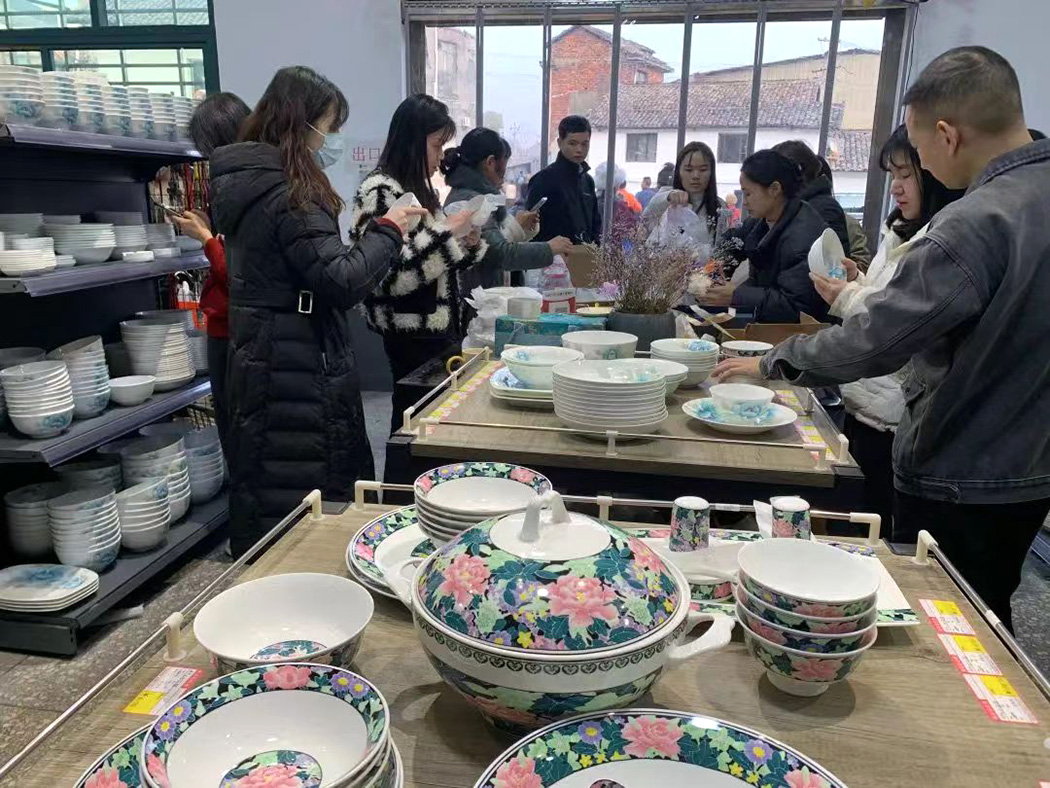
As the prices are very cheap, there is not much profit, Liao said. However, he knows that the prices cannot go too high because people come to Liling to find cheap products.
He wants to improve the decoration of his factory to make it more stylish and pleasing to young customers, and so that it can remain attractive for the long term, he added.
Feng Yan, deputy general manager of Huasheng Porcelain, which mainly produces everyday use items, said her company has held discounting events since August.
ALSO READ: Young people change their perception toward consumerism
During the National Day holiday last year, she sold tens of thousands of pieces of porcelain each day, she said.
"The online buzz and enthusiasm from netizens are a good thing for my company and the city as a whole, as many people are not aware that the city is a major manufacturing hub for ceramics," she said.
About 80 percent of her company's porcelain is sold to overseas markets, but after the impact of COVID-19 pandemic she is pleased to see more Chinese people interested in their products, she said.
Young people are especially interested in our products because those for the overseas market are more colorful and diverse in design than domestic porcelain, she said. They like porcelain of different designs, colors and styles so the company will make new products based on their needs, she said.


